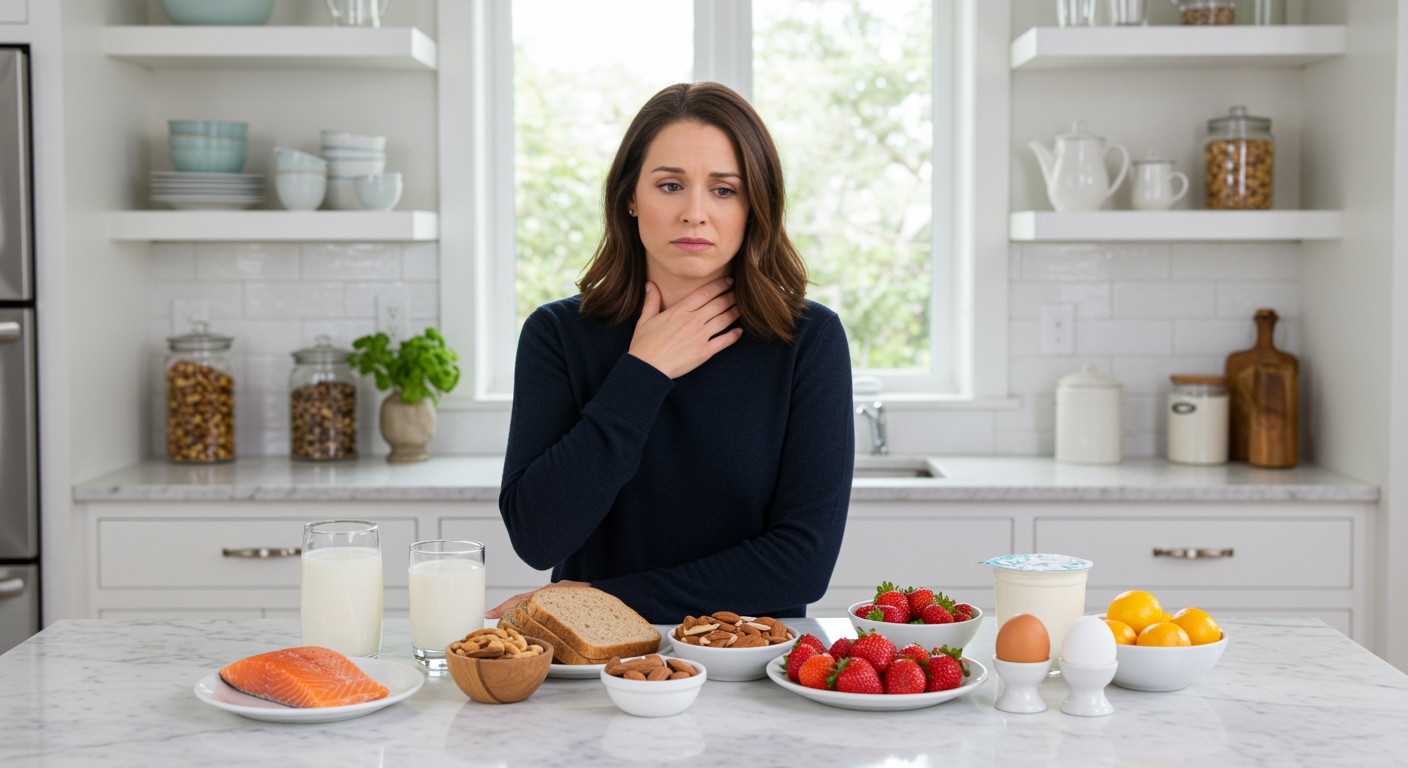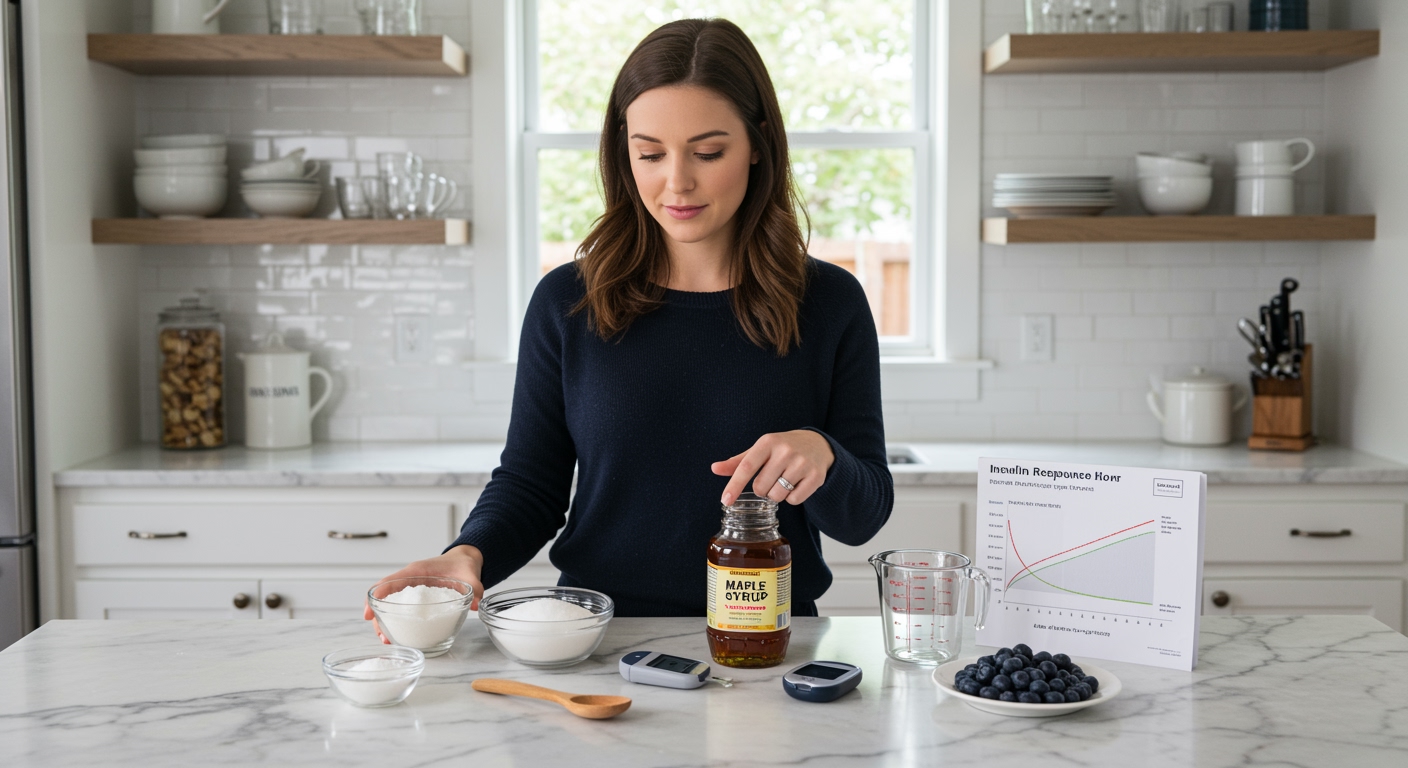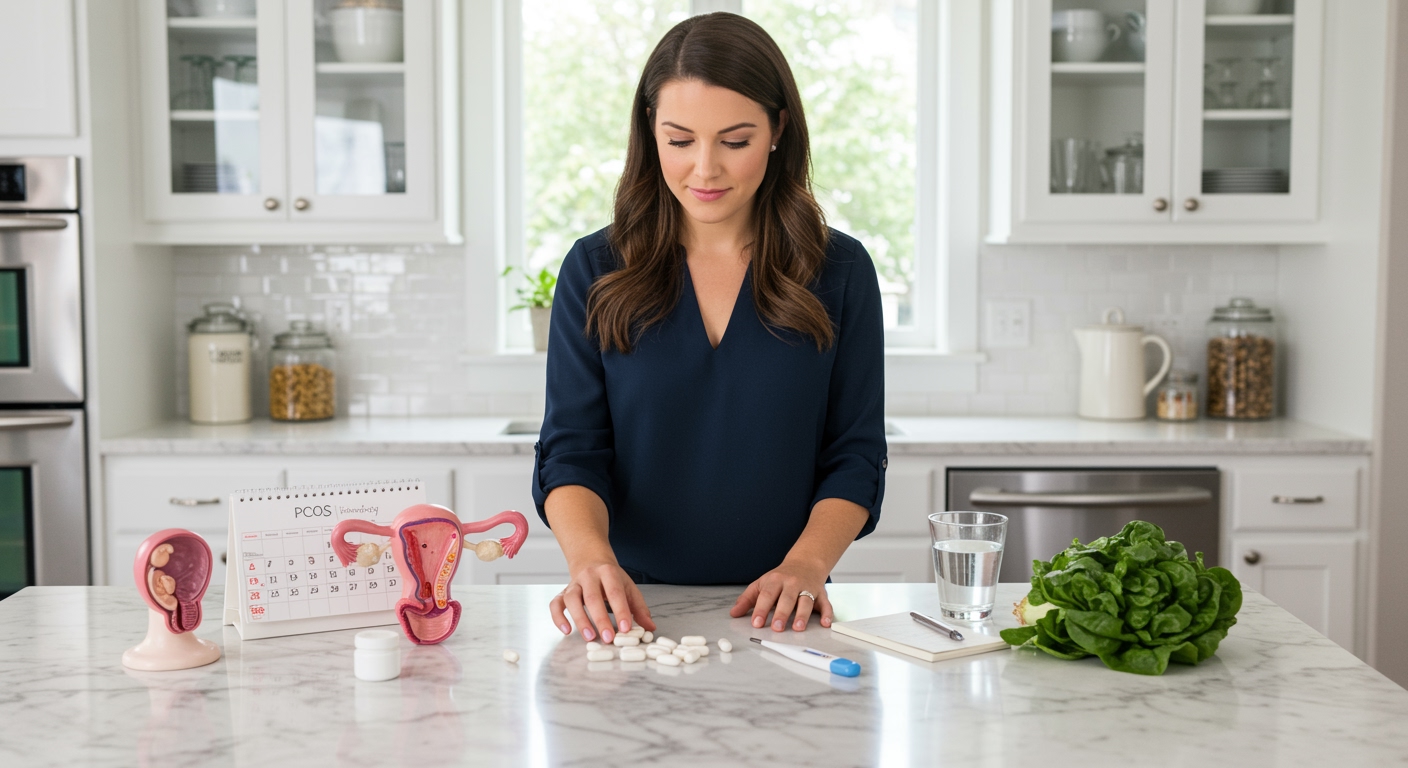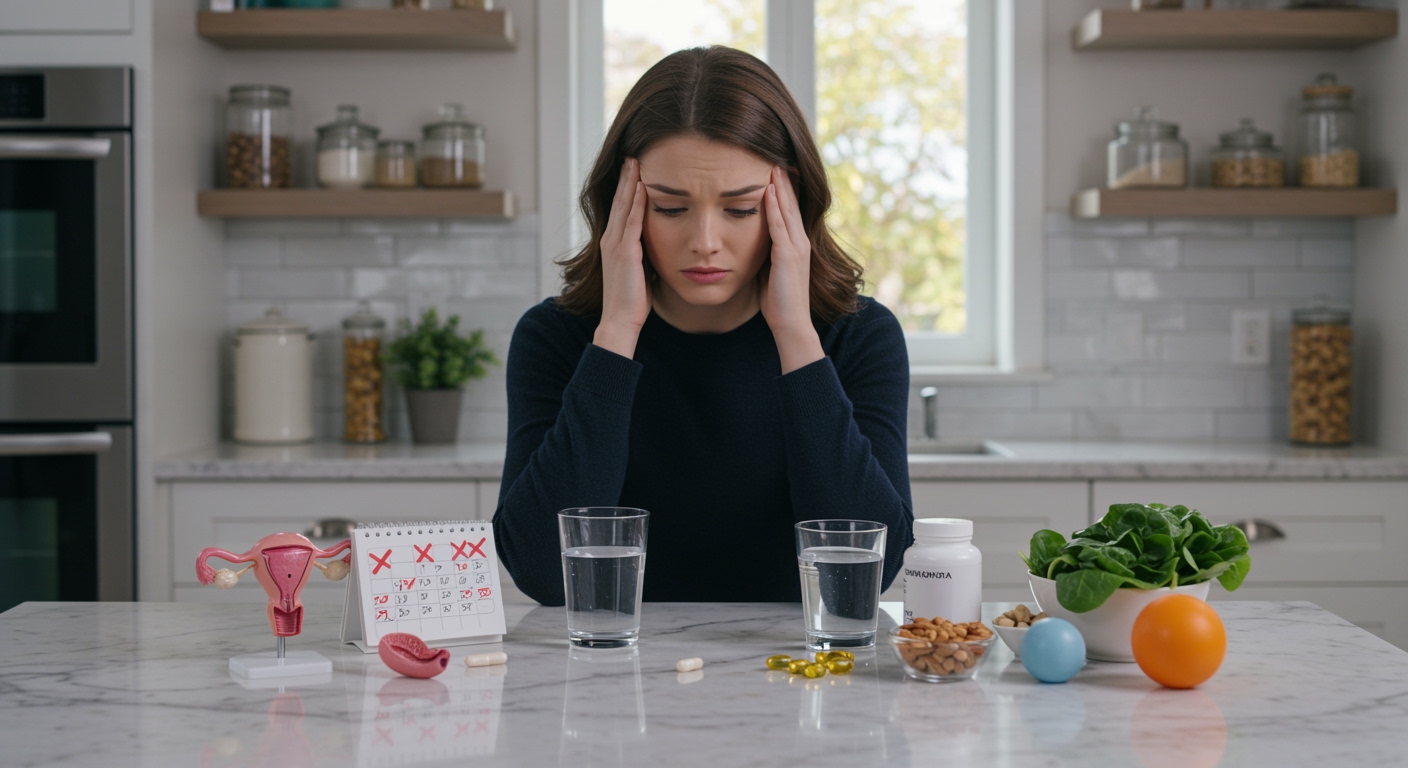✪ Key Takeaway: PCOS does not directly cause food allergies but increases inflammation and gut problems that can trigger food sensitivities.
Introduction
You eat the same foods you have always enjoyed, but suddenly your body rebels with bloating, skin breakouts, or digestive upset.
Many women with PCOS notice their bodies seem to react differently to foods they once tolerated well, leaving them wondering if their hormonal condition is somehow connected to these new food problems.
Hi, I am Abdur, your nutrition coach, and today I am going to explain the complex relationship between PCOS and food reactions, helping you understand what is really happening in your body.
Does PCOS Actually Cause Food Allergies?
PCOS does not directly cause true food allergies, which involve your immune system producing antibodies against specific proteins.
True food allergies are genetic conditions that develop independently of hormonal disorders like PCOS.
However, PCOS creates a perfect storm of inflammation and metabolic dysfunction that can make your body more reactive to certain foods.
The chronic low-grade inflammation associated with PCOS can make your immune system more sensitive and trigger-happy.
This heightened inflammatory state means foods that never bothered you before might suddenly cause uncomfortable reactions.
Think of it like having a car alarm that becomes overly sensitive after being damaged – it goes off at the slightest touch when it used to ignore minor bumps.
✪ Fact: Studies show PCOS women have 40% higher inflammatory markers than women without the condition.
How Does PCOS Increase Food Sensitivities?
PCOS disrupts your gut health through multiple pathways, creating an environment where food sensitivities can flourish.
High insulin levels, common in PCOS, promote intestinal permeability or what people call leaky gut syndrome.
When your gut lining becomes more permeable, partially digested food particles can slip through into your bloodstream.
Your immune system sees these food particles as foreign invaders and mounts an inflammatory response against them.
The elevated androgens in PCOS also alter your gut bacteria composition, reducing beneficial bacteria that help you digest foods properly.
This bacterial imbalance means certain foods that require specific enzymes or bacteria to break down become problematic for your system.
✪ Pro Tip: Keep a food and symptom diary for two weeks to identify patterns between what you eat and how you feel.
Which Foods Trigger Problems Most Often?
Women with PCOS most commonly report problems with dairy products, particularly milk, cheese, and yogurt.
Dairy contains proteins like casein that can trigger inflammatory responses in people with compromised gut health.
Gluten-containing foods like wheat, barley, and rye are another major trigger for many PCOS women.
Gluten can increase intestinal permeability and worsen the inflammatory cascade already present in PCOS.
High-sugar foods and processed carbohydrates cause rapid blood sugar spikes that can trigger inflammatory responses.
Some women also develop sensitivities to eggs, nuts, or nightshade vegetables like tomatoes and peppers due to their compromised digestive systems.
✪ Note: Food sensitivity tests are often unreliable – elimination diets provide more accurate results for identifying trigger foods.
Can You Reverse Food Sensitivities With PCOS?
Many food sensitivities related to PCOS are reversible when you address the underlying gut health and inflammation issues.
Healing your gut lining through targeted nutrition can restore your ability to tolerate foods that currently cause problems.
Supporting your gut with anti-inflammatory foods like fatty fish, leafy greens, and berries helps calm the overactive immune response.
Probiotic-rich foods like kefir, sauerkraut, and kimchi can help restore the beneficial bacteria that aid proper digestion.
Managing your blood sugar through balanced meals prevents the insulin spikes that contribute to gut inflammation.
However, this healing process takes time – typically 3 to 6 months of consistent dietary changes before you see significant improvement.
✪ Pro Tip: Work with a nutrition professional who understands PCOS to create a personalized gut-healing protocol.
What Should You Do If You Suspect Food Sensitivities?
Start with an elimination diet where you remove suspected trigger foods for 3-4 weeks, then reintroduce them one at a time.
This systematic approach helps you identify which specific foods are causing your symptoms without expensive and often unreliable testing.
Focus on healing your gut simultaneously by eating plenty of fiber-rich vegetables, lean proteins, and healthy fats.
Avoid processed foods, excess sugar, and artificial additives that can further inflame your digestive system.
Consider working with a healthcare provider who can evaluate whether you need additional support for gut healing or PCOS management.
Remember that managing PCOS effectively through diet, exercise, and stress reduction often resolves many food sensitivity issues naturally.
✪ Fact: Women who improve their PCOS symptoms through lifestyle changes report 60% fewer food sensitivity issues within six months.
The Bottom Line
PCOS does not cause true food allergies, but it creates conditions that make food sensitivities much more likely through increased inflammation and compromised gut health.
Your body is not broken – it is responding to an environment that needs healing, and with the right approach, many of these food reactions can be resolved.
I would love to hear about your experiences with food sensitivities and PCOS – please share your questions or insights in the comments below so we can learn from each other.
References
At NutritionCrown, we use quality and credible sources to ensure our content is accurate and trustworthy. Below are the sources referenced in creating this article:
- PMC: PCOS and Inflammation Research
- BC Dietitians: PCOS and IBS Food Sensitivity Guide
- PCOS Nutrition: Food Sensitivities and PCOS
- Frontiers in Endocrinology: PCOS Gut Health and Inflammation





